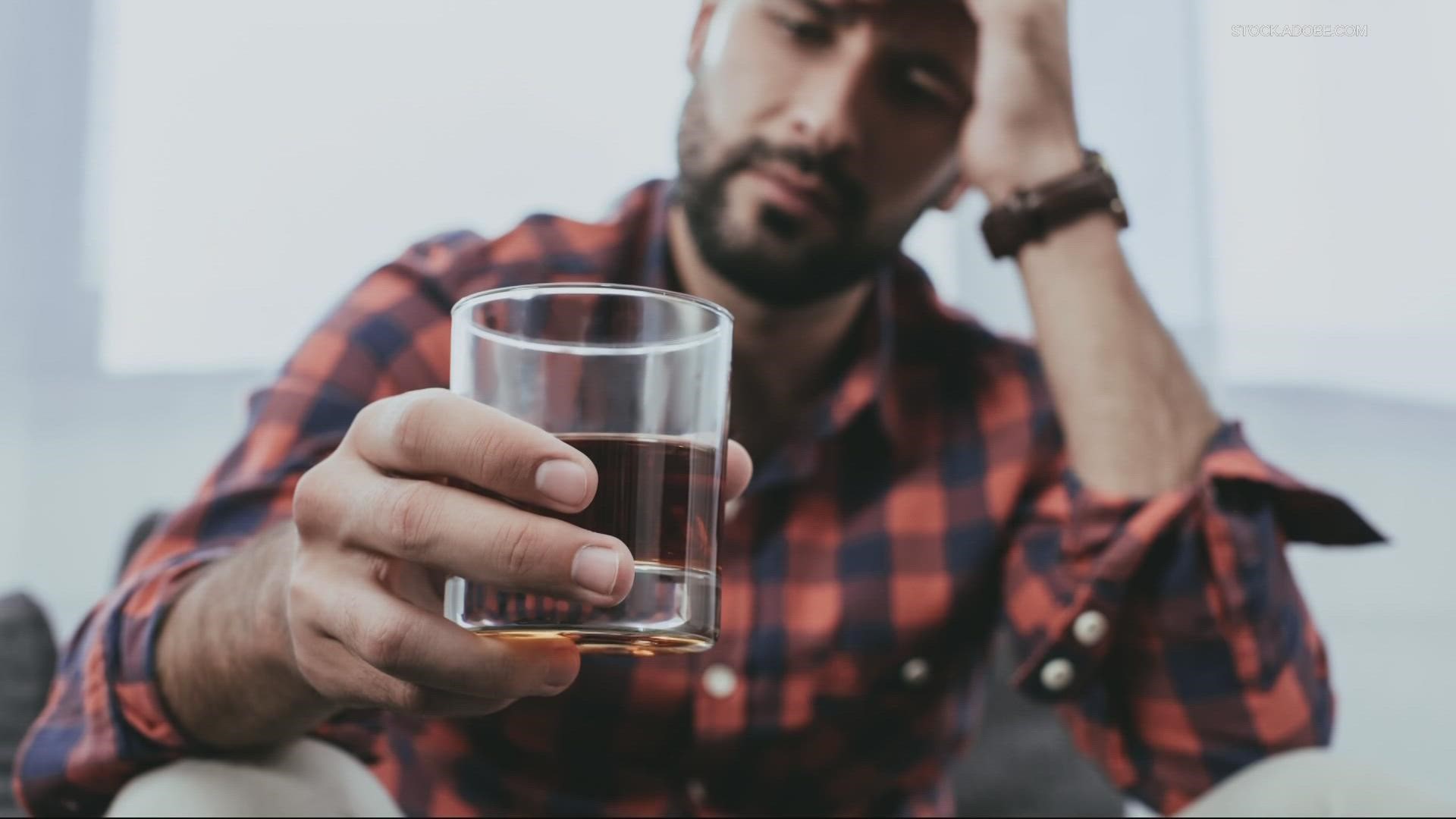OREGON, USA — Excessive alcohol use is the third leading cause of preventable deaths in Oregon. More than 2,000 Oregonians die each year from excessive alcohol use, according to the Oregon Health Authority.
Now OHA is asking you to “Rethink the Drink” in a new public health campaign to raise alcohol consumption awareness.
While drinking is a part of our culture and celebrations, it can also have a negative impact. From the loss of productivity to healthcare and motor vehicle crashes, alcohol use cost the state about $4.8 billion dollars in 2019, according to one report. That is about $1,100 a year for every person in the state.
“Alcohol affects all of us, even those of us who don’t drink, because of the impact on our society and the costs,” said Dr. Tom Jeanne with the Oregon Health Authority.
Rethink the Drink asks people to consider the role alcohol plays in their lives and community. Dr. Jeanne said that this does not mean everyone must completely stop drinking alcohol altogether; rather that they should take time to understand the impact and adjust their lifestyle accordingly.
“I think understanding what the latest science says is excessive drinking is important for us to all be aware of,” he said.
In the first year of the COVID-19 pandemic, Oregon saw a 21% increase in death directly attributed to alcohol compared to the year before. While we’ve seen an increase in excessive drinking during the pandemic, Dr. Jeanne said that it has been a growing trend nationwide and here in Oregon over the past few decades.
More than one in five people in Oregon drink excessively, according to OHA. It’s not just a problem for young people — those in their 30s and 40s binge drink at nearly the same rates as people in their 20s.
“Over time alcohol wreaks havoc on the body; increases blood pressure, affects many organs; in which the liver is the worst,” said Dr. James Polo, executive medical director for Blue Cross Blue Shield of Oregon. “Alcohol also increases your risk for many cancers. So, over time alcohol can be very damaging to the body.”
Elevated health risks include prostate, breast, colon, and other cancers; cardiac conditions; depression; anxiety and memory loss; and three types of liver disease.
“There are two types of drinking that we worry about — binge drinking, when people just drink a lot of alcohol in a very short period of time, or people who have heavy use and over time they’re drinking more and more and more,” Polo said.
So, what is considered “heavy” drinking?
For a cisgender man, it is 15 drinks or more per week. For a cisgender woman, it’s eight drinks or more a week.
Binge drinking is when a man has five or more standard drinks in a couple of hours. For a woman, it’s four or more drinks.
“Understanding that is key — but also, just thinking about if you’re drinking more than you think you would like to drink and understanding, maybe, some of the impacts it’s having on your life,” Jeanne said.
If you think you might have a problem with alcohol there are resources available at any time. In a crisis, the 988 mental health crisis line is always there via phone call or text.
For less urgent help, Dr. Polo said to start with your primary care doctor.
“Be honest, because there might be some other health considerations to look at – at the same time most doctors will be able to readily encourage individuals, explain concerns about what overuse might be, and then also provide resources,” he said.
Remember to look out for the people in your life. Dr. Polo said to speak up if you notice someone may be struggling.
“You have to approach folks with facts, offer what you’re observing, no judgment, tell them why you’re concerned, show them that you care,” he said.
“I think it’s trying to raise awareness and it’s also important to note, we’re not telling people to stop drinking. We’re just asking that they pause for a moment and think about the way alcohol is prevalent in their own lives,” Dr. Jeanne said.

